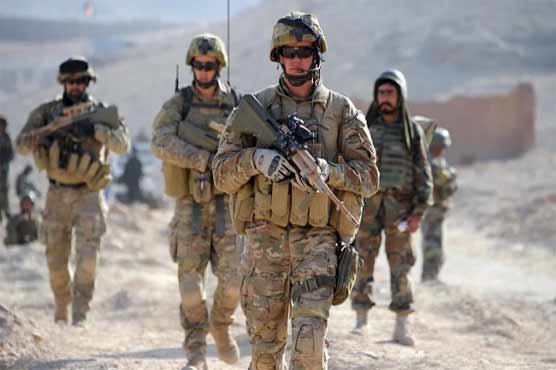(AhlulBayt News Agency) - Members of the US armed services could be prosecuted for war crimes for providing midair refueling and other military support for the Saudi-led coalition in Yemen, the Obama administration has been warned.
Nearly 4,000 Yemeni civilians have been killed since the conflict began in earnest in March
In a letter to secretary of state John Kerry and defence secretary Ash Carter, US congressman Ted Lieu, a former air force lawyer, said the administration’s insistence that it is not taking part in target selection for coalition sorties – many of which have hit hospitals and schools – does not excuse the US from legal responsibility.
“I find it deeply troubling that the US apparently has no advanced knowledge of what targets will be struck by jets that are refueled by US personnel with US tankers,” Lieu said in his letter. “The US would appear to be violating LOAC [laws of armed conflict] and international standards by engaging in such direct military operations if US personnel are not aware if targets are civilian or military, if the loss of life and property are disproportional, or if the operation is even militarily necessary.”
Lieu, who lectured in the laws of war during his service as an air force judge advocate general (Jag), said: “US personnel are now at legal risk of being investigated and potentially prosecuted for committing war crimes. Under international law, a person can be found guilty of aiding and abetting war crimes.”
“That’s an awful dangerous game to play,” Lieu told the Guardian. “That we’re going to violate the laws of war because no one is going to prosecute us.” He said a future administration might take a different view of the US involvement in Yemen.
A legal adviser for the International Committee of the Red Cross, Tristan Ferraro, has argued that refueling represents one of the elements of support that would make the supporting nation a party to a conflict.
On Monday, the US ambassador to the UN, Samantha Power, called for an end to Saudi-led airstrikes after a string of incidents with high civilian casualties. The US has announced it is reviewing its military support for the coalition, it had stopped supplying cluster munitions, and it has urged the Saudi armed forces to take greater precautions to avoid civilian casualties.
“US security cooperation with Saudi Arabia is not a blank check. Even as we assist Saudi Arabia regarding the defence of their territorial integrity, we have and will continue to express our serious concerns about the conflict in Yemen and how it has been waged,” a senior administration official said in an emailed statement.
“We are aware of congressional concerns regarding the conflict in Yemen and we too remain gravely concerned by its high toll, including civilian casualties and damage to infrastructure caused by all sides of the conflict,” a state department official said.
“We continue to have internal policy discussions to ensure our limited support for the Saudi-led coalition is consistent with our foreign policy goals and values.”
n August, the US State Department approved the sale of more than 130 Abrams tanks, 20 armored recovery vehicles and other equipment worth about $1.15 billion to Saudi Arabia.
Saudi-led bombardments have struck hospitals, markets and other places where civilians gather.
In September, Amnesty International reported that a US manufactured bomb had been used in a Saudi strike against a Doctors Without Borders hospital in Yemen’s northwestern province of Hajjah which claimed the lives of 19 people.
In October, more than 140 people lost their lives and over 525 others sustained injuries after Saudi military aircraft struck a hall in the Yemeni capital of Sana'a, where rows of people were attending a funeral.
UN Humanitarian Coordinator for Yemen Jamie McGoldrick said last month that the death toll from the Saudi military aggression could rise even further as some areas had no medical facilities, and that people were often buried without any official record being made.
/257
source : Guardian
Saturday
5 November 2016
12:52:33 PM
789945

Members of the US armed services could be prosecuted for war crimes for providing midair refueling and other military support for the Saudi-led coalition in Yemen, the Obama administration has been warned.
